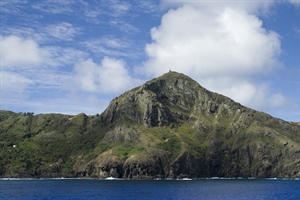An adventure holiday that takes you into the wilderness, whether it’s a trek in the mountains or a journey through the desert, is one of life’s great experiences. During your travels you are likely to spend periods of time far from healthcare facilities. This makes it very important to take extra care of your health when you travel in back country and wild places.
Before you go into the wilderness…
Travel health starts before you even leave Canada. Six to eight weeks before you set out on your trip make an appointment to see one of the travel health nurses at Canadian Travel Clinics. They will give you specific action steps that will protect your health. This might include some travel vaccinations to support the other measures you will be taking, such as insect bite avoidance.
Travel health insurance
Another step to take before you go on an adventure holiday is to check that your travel health insurance has got you covered for all the activities you have planned. You may need to get specialist insurance for sports like scuba diving or climbing.
Medical evacuation from a remote area is incredibly expensive, and it may be difficult to arrange without the support of an insurance company. Your provincial or territorial health insurance will not pay for your healthcare while you are abroad. So, arranging travel health insurance should be at the top of your travel to-do list.
Know about rabies
If you have been bitten or scratched by an animal in an area where rabies is endemic, seek immediate medical advice even if you have been vaccinated.
Travellers going to remote areas, particularly hikers and cyclists, are at elevated risk from animal bites. And if you are at risk from animal bites, you are at risk of being exposed to the lethal viral disease rabies.
The rabies vaccine offers pre-exposure protection, but if you do get exposed to rabies, you’ll need another shot. The pre-exposure treatment slows the progression of rabies, giving you time to get to a medical centre. Those extra days could make all the difference if you are far from civilisation.
Learn more about rabies and the rabies shot on our rabies vaccine page.
Avoid insect bites
Insect bites are not just annoying: they can be deadly. Illnesses like malaria, Japanese encephalitis, yellow fever and tick-borne encephalitis are caught from insect bites. You can take antimalarials and get shots for some of these illnesses, but you also need to practise insect-bite avoidance to maximise protection. There’s more information about avoiding insect bites in our advice article.
Eat and drink safely
A stomach upset in the wilderness can cause serious problems, so reduce your chances of catching one by taking basic food and water hygiene steps. Many expeditions and camps have rules about handwashing. Those rules are there to protect you, so it’s a good idea to follow them. Your travel health advisor might recommend you get shots against hepatitis A and typhoid, which will support your food and water safety regime.
Are you at risk from altitude sickness?
Altitude sickness can affect anyone spending time in the world’s highest mountains. If it is not treated, then it can be fatal. So, if you are going above 2,400m, you need to know the signs of altitude sickness and how to treat it. My Health Alberta has a handy round-up of altitude sickness symptoms.
Ask your travel health advisor about altitude sickness if you know you will be at altitude during your trip. It can also exacerbate some medical conditions, so you may wish to discuss this with your usual healthcare provider.
For more information about travelling in remote areas…
We’ve got a whole library of travel health articles, including tips on desert travel; advice on visiting the tropics; and ideas for staying healthy while trekking and hiking.
Remember to make your travel health appointment six to eight weeks before you go
If your trip is long (more than three weeks) or your itinerary is complex, then you should make a double appointment so there’s time to go through everything. Book an appointment online at our travel clinic on Carling Avenue, Ottawa or check to see if we have a branch near you.

